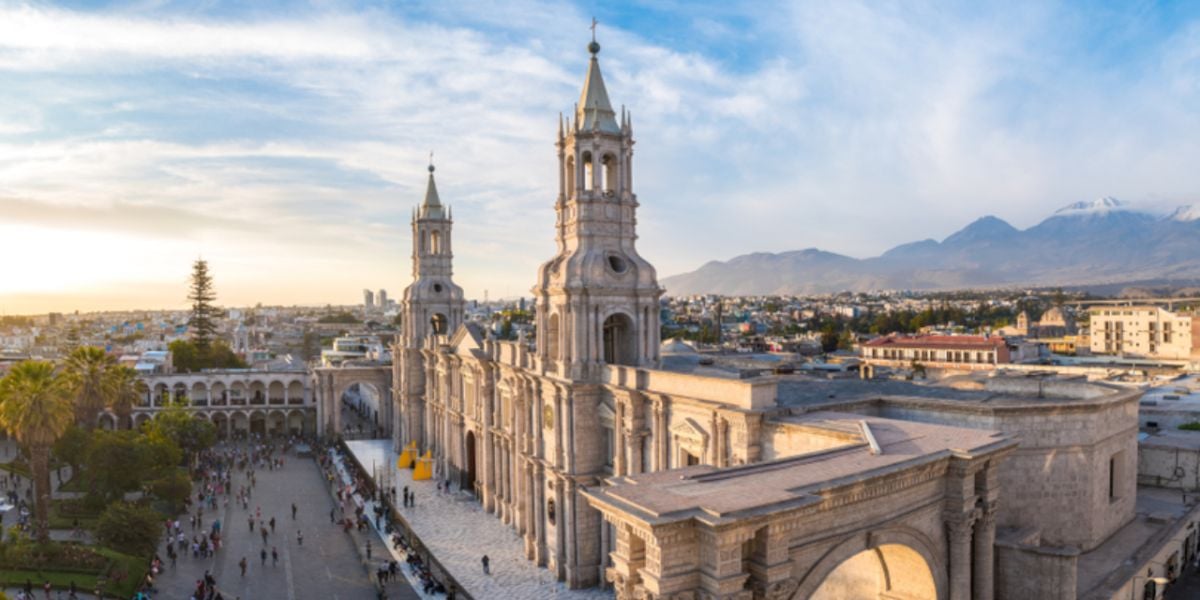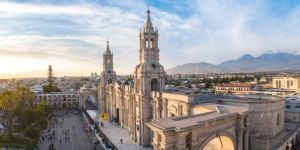
Located in the South of Peru, Arequipa is Peru's second largest city, a beautiful colonial city lovingly nicknamed the ‘white city' for its use of white volcanic ‘sillar' stone.
Arequipa is a very dynamic and attractive city, hosting several businesses. It can be an ideal destination for expatriates, not only for its employment opportunities and mild temperatures but also the good quality of life, including a diverse and affordable housing market. Read on for more information about finding accommodation in Arequipa.
Types of accommodation
Arequipa is known for its beautiful colonial architecture, particularly in the central historic district of town. Real estate in this part of town is competitive and relatively expensive. However, the sprawling city offers a wide range of comfortable housing options ' from historic homes to modern apartments. Whether you're looking for a large family home or a small shared apartment, the housing sector caters to all needs ' with furnished and unfurnished options also available.
It may take some time to find what you're looking for. Like in Lima, Arequipa also has many hotels and serviced-apartments catering to the tourist industry. These could be a good option as a temporary measure, giving you time to search for the ideal accommodation without the pressure of committing immediately. Note that serviced-apartments provide maintenance and laundry facilities.
Rent prices
Rent prices in Arequipa vary according to the square footage, the type of housing and the neighbourhood. Prices for furnished properties are higher. You should budget for around 1000 New Peruvian Soles (PEN) to rent a single-bedroom apartment in the city centre and 800 PEN for the same type of accommodation in the outskirts.
For a three-bedroom apartment, you will need an average of 2,500 PEN in the city centre and some 1,800 PEN in the outskirts. Prices can vary greatly with luxury and budget options to meet every taste.
Find accommodation
Whether you are looking for a house or an apartment, the internet is a good place to start and also checking classified ads in local newspapers. Contacting local real estate companies is also a good idea, giving them a detailed list of your requirements. This can help speed up the process, but note that you'll have to pay agency fees, which generally equal a month's rent.
If you are already in Arequipa, why not tour the different neighbourhoods? This will give you a good feel for where you'd like to live and keep your eyes out for 'SE ALQUILA' signs, which means 'for rent'. In the case of residential buildings, you can also inquire with the concierge about any vacant housing in the same building or in the surroundings.
Rental Contracts
Be sure that you read your rental contract carefully, as contracts can be very different to what you're used to in your home country. If you struggle to understand the Spanish legal text, ask to get it translated into English. You will usually have to pay at least a month's rent as a deposit. You should also check the landlord's responsibilities, the notice period for either party to end the tenancy, and any fees for breaking the contract early.
Also, ensure that you know what's included in the rent and any other fees you're responsible for paying. Municipality taxes that cover things like garbage collection are usually paid by the landlord. Many apartment buildings have a service charge (mantimiento) covering elevator maintenance, security etc. which tenants are usually responsible for paying, on top of the rent. Sometimes water and other utilities are included in this, but not always. If you do not have a resident visa, you will need 'permission to sign contracts' granted by MIGRACIONES, the central Migration office.
Useful links:
Mitula
A Donde Vivir
OLX
Urbania
Paginas amarillas ' Real estate agencies in Arequipa
We do our best to provide accurate and up to date information. However, if you have noticed any inaccuracies in this article, please let us know in the comments section below.








